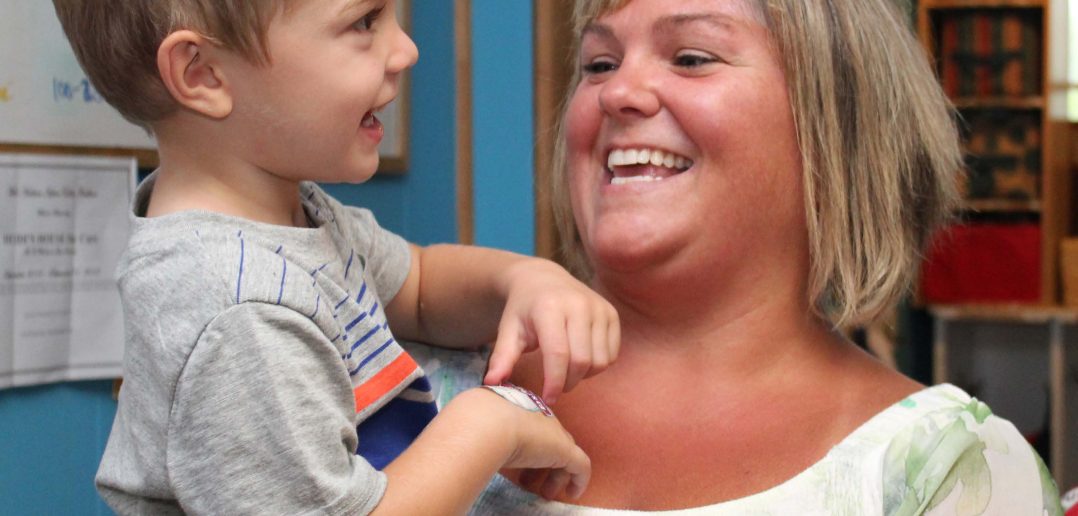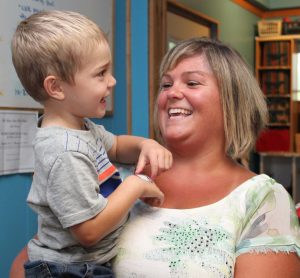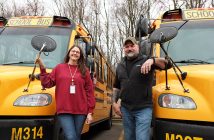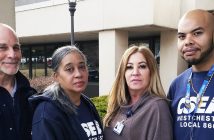SAUGERTIES — When CSEA/VOICE Local 100A Ulster Chapter Representative Heidi Brandt was appointed to our union’s statewide Political Action Committee by CSEA President Danny Donohue, Brandt thought to herself about her appointment, ‘Why me?’
As an active CSEA member for nearly 10 years, Brandt brings a wealth of child care advocacy accomplishments to the table. On the committee, she quickly discovered how connected we are as members — and how uniquely positioned she is to help our members, providers and families make positive changes.
Child protective services
One of the struggles that Brandt has seen as a provider and a chapter representative is dealing with sudden daycare placement situations with child protective services (CPS) workers, who continue to face heavy caseloads and short staffing.
“What officials and decision-makers don’t see, that we see, is the scramble that CPS workers endure when placing a child in emergency situations with aunts, uncles or other family who work each day and suddenly need to rely on child care,” Brandt said. “We see this time and again. Providers get the phone call and there is often only one or a few days until the child needs placement in a daycare program.”
“Because of the unstable nature of many of these situations and the difficulty in settling the required paperwork in time to prevent us from going out of regulation, providers more often than not say no to placing the child in their care,” said Brandt.
“I thought to myself, ‘we’ve got to be able to do better than this,’” Brandt said. “We are the first line of help for these children and as professionals, we need to be willing to step up. The children are coming from disrupted families. It’s a traumatic process and they are not equipped to cope. It is our responsibility, as child care professionals, to serve our communities and step up and help in any way we can to relieve stress.”
Brandt began to see just how connected we all really are in CSEA and immediately understood what she could do to help.
She brought the issue to other child care provider members at their regular union chapter meeting. Providers admitted to having been less accommodating with emergency child care placements.
Brandt uncovered the reason. Providers did not realize that they could get the necessary paperwork done on time. Providers who previously turned away children said the fear of going out of compliance with the state Office of Children and Family Service (OCFS) regulations drove their decision.
Now that providers understand they can accept the children without going out of OCFS regulations, they are willing to do so.
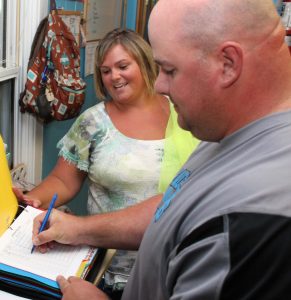
Impeccable record keeping is a requirement for child care providers. Here, Brandt has a parent sign paperwork.
Agency understaffing affects providers
Many of our members who are employed in direct care roles, including state Office for People With Developmental Disabilities (OPWDD), Office of Mental Health, and other agencies, are often mandated to work double and even triple shifts without warning because of persistent understaffing at these agencies.
Brandt has seen the effect of this on families and the providers who care for their children first hand. She is working to spread the word in her chapter and in her statewide Local 100A.
“With our union, we can advocate for them and should be aware of their struggle,” said Brandt.
Brandt noted that Local 100A providers often care for children of our members employed in these agencies. One provider in her chapter cared for three children of an OPWDD employee who is a single mother. When the mother was forced by the agency to work a third mandatory shift, her provider had to keep her kids with no notice, working 18 hour days and forcing her out of regulation compliance with OCFS. While in-home child care can often accommodate parents who work non-traditional hours, the mother was eventually forced to take a demotion to accommodate her child care needs.
“She shouldn’t have to take a demotion. That’s wrong, but until it’s sorted out, as providers we can still do more,” Brandt said. This is why I am encouraging providers across the state to do all they can to help without violating OCFS regulations. Providers need to get politically active on this issue with me. It’s important.”
As CSEA members, we are all on the front lines in our communities and see the negative impact that bad policy and severe understaffing can have on working people, families and children. “We are all connected in CSEA, and we can all make a difference,” Brandt said.
— Jill Asencio

